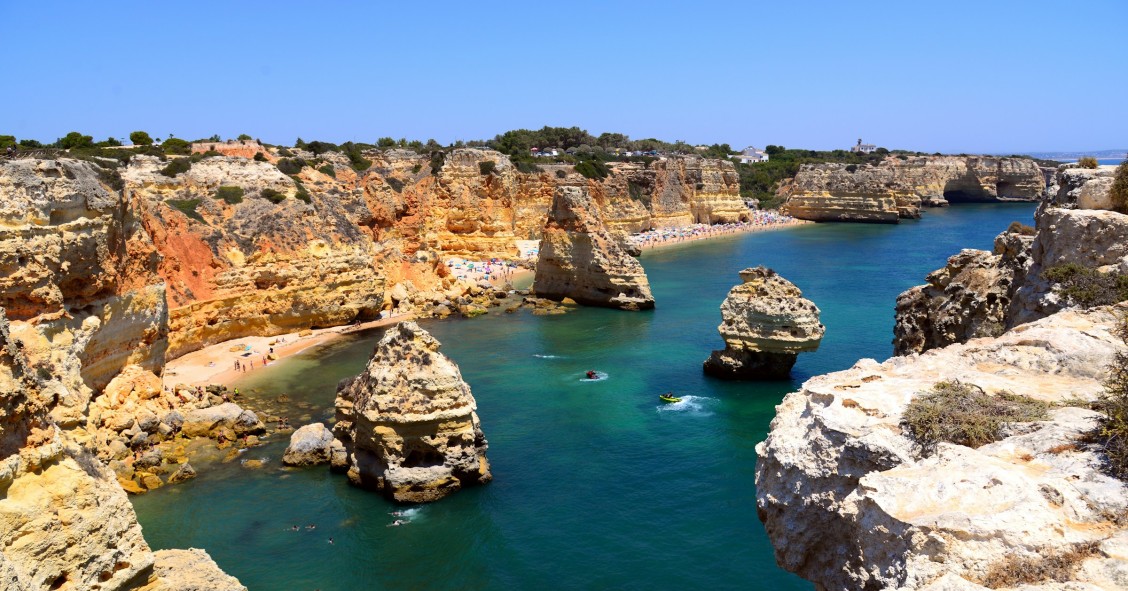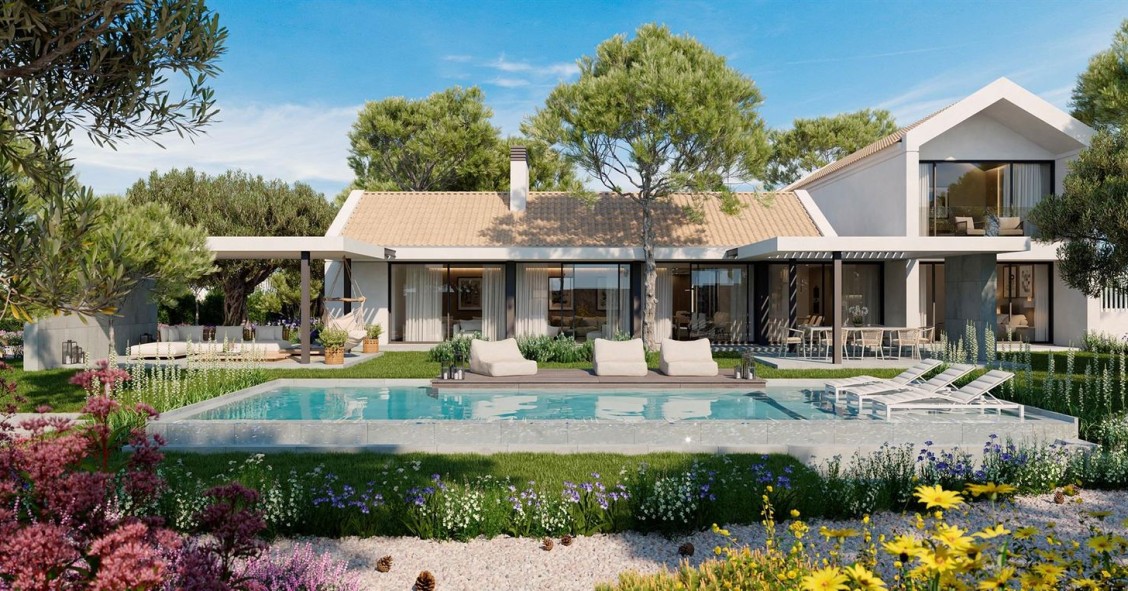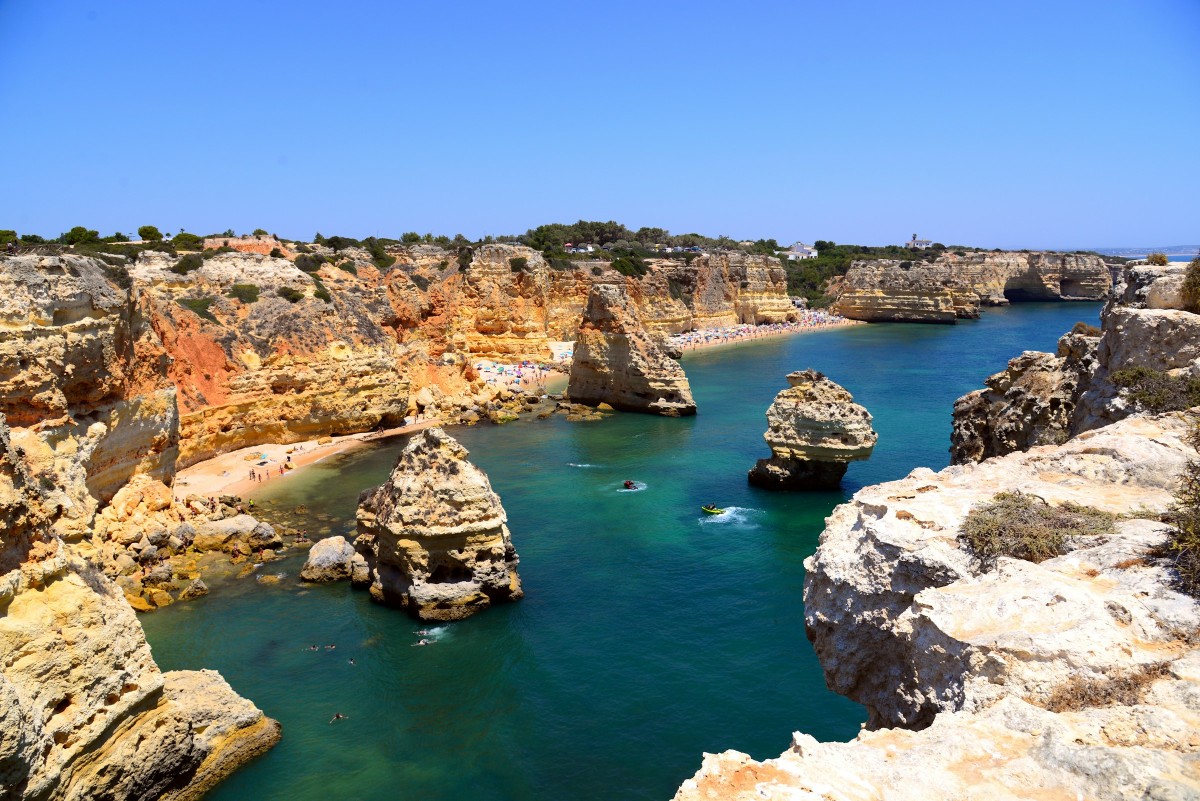
The Algarve, located on Portugal's south coast, is a proper picture-postcard spot, with gorgeous beaches and a wonderfully laid-back atmosphere. But if you’re thinking about living in the Algarve, there's so much more to it than just the lovely holiday vibes you see in the brochures. It's a place brimming with natural beauty and a great way of life, though, like anywhere, it’s got its little quirks to consider too.
Is the Algarve a good place to live?
Life in the Algarve is very much defined by its lovely climate, which encourages an outdoor lifestyle for most of the year. With an abundance of sunny days, those living here often find themselves enjoying the many beaches, playing a round of golf, or exploring the beautiful countryside inland. The rhythm of daily life generally moves at a more unhurried pace than in many Northern European countries, with a strong emphasis on family and, of course, the fantastic fresh seafood.
The region is also widely regarded as safe, which certainly adds to its attraction for anyone considering a move. While the summer months attract a large number of visitors, outside of the peak season, you’ll find a genuine sense of local life and a friendly community.
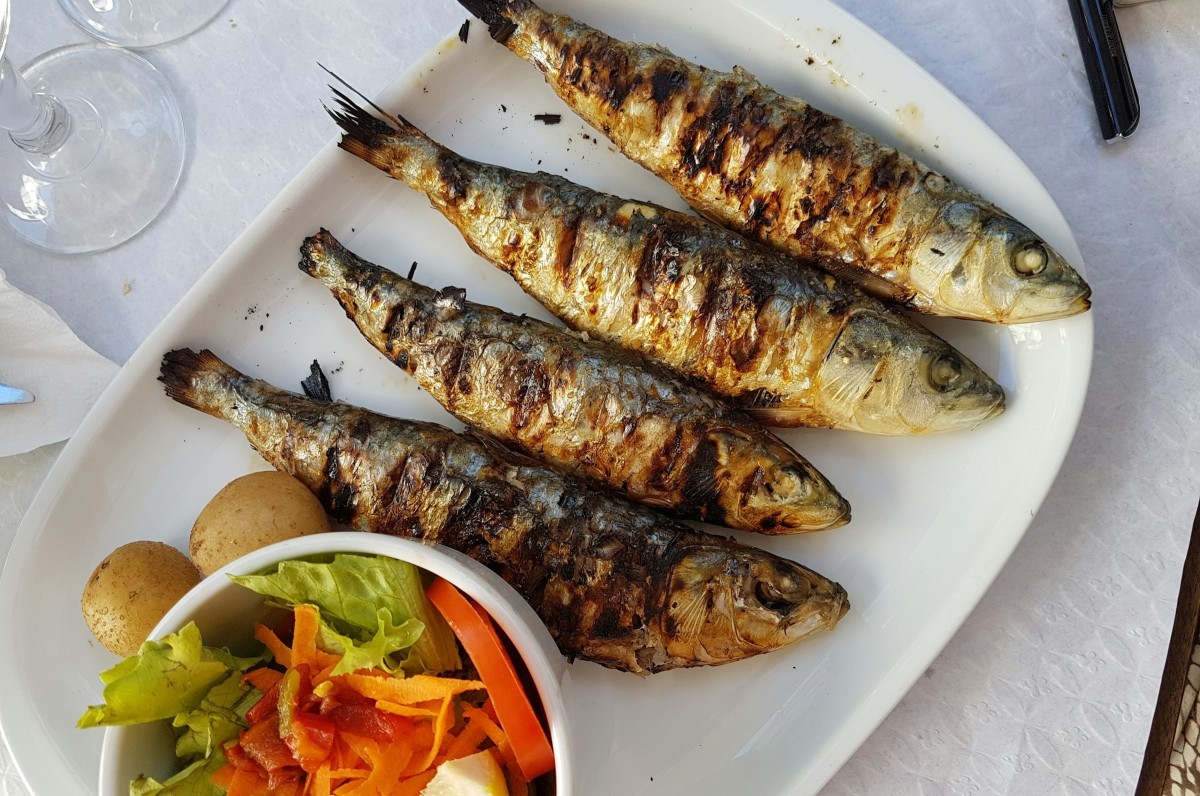
Pros and cons of living in the Algarve
Every place has its particular advantages and a few challenges, and the Algarve is no different. Life here certainly comes with plenty of great aspects as well as a few things you’ll want to be aware of. Weighing up the pros and cons of living in the Algarve is vital before relocating.
Some of the pros of life in the Algarve include:
- Fantastic climate and outdoor life: the weather and Algarve coastline actively encourage a lifestyle spent outdoors, which can be a huge boost to one's well-being.
- More affordable living: compared to the UK or many other Western European countries, the general cost of living here, particularly for things like groceries, local produce, and dining out, can be considerably lower.
- A strong expat community: there’s a really well-established and welcoming expat network across the region, making it easier to settle in and find support.
However, there are a couple of cons to consider as well:
- Seasonal fluctuations: the region can become incredibly busy and crowded during the peak summer tourist season, which might not suit everyone.
- Bureaucracy and Language: dealing with Portuguese administration can sometimes be a slow and somewhat complex process. While many locals speak English, truly integrating and handling daily tasks often requires learning some Portuguese.
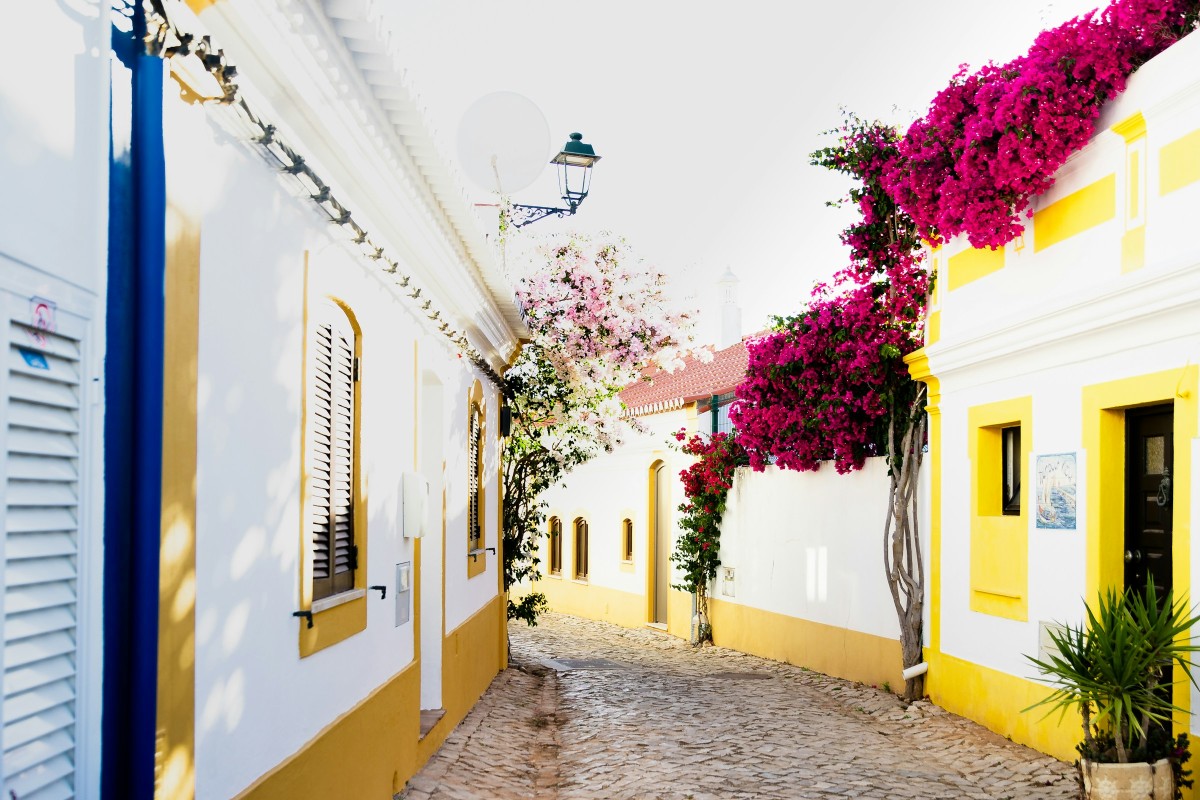
Best places to live in the Algarve
Settling in the Algarve means choosing between lively towns, peaceful fishing villages and everything in between. The best places to live in South Portugal chop and change depending on your lifestyle choices and budget.
Many expats tend to make their homes in places like Lagos and Albufeira for the beaches and social buzz, or in Vilamoura for its marina and golf courses. At the same time, areas such as Tavira and the quieter inland villages offer a slower pace and a more traditional feel.
Lagos
Lagos has a lovely sense of history and a lively atmosphere, making it a firm favourite for those who appreciate old buildings alongside modern conveniences. The town feels quite animated, with some excellent beaches nearby and plenty of evening activities.
Faro
As the main administrative town of the Algarve, Faro is centrally located and deeply rooted in local heritage. Its well-kept old town, museums, and historic churches give it a genuine Portuguese feel. Faro provides a balanced way of life, with all the shops, restaurants, and bars you'd need, without being overwhelmingly touristy.
Albufeira
Albufeira is a popular spot for anyone who loves spending time by the sea and enjoys a good social buzz. With its many beaches and busy nightlife, it offers an energetic environment for those who thrive on constant activity and a lively atmosphere with lots of things to do.
Tavira
Tavira offers a calmer existence, set amongst pretty views and pleasing architecture. It’s a wonderful choice for those looking for a peaceful base, where you can easily get out to enjoy the natural beauty and appreciate a touch of the past.
Vilamoura
Vilamoura is all about upscale living. It’s well-regarded for its top-notch golf courses and impressive marina, drawing in people who enjoy a more refined way of life with plenty of opportunities for sport and relaxation right on their doorstep.

How much does it cost to live in the Algarve?
The cost of living in the Algarve is one of the reasons so many people pack their bags for Portugal’s south. Eating out is quite reasonable: a cheap main course somewhere local sets you back around €15, and a meal for two in a typical restaurant will cost about €50. You can enjoy a cold beer in a bar for roughly €3, and picking up a coffee in a café is rarely more than €2.
As for getting settled, basic utility bills (electricity, water, rubbish collection and such) for a standard flat tend to sit somewhere between €100 and €180 per month. Groceries are affordable, especially if you shop in the markets for fruit, veg and local cheese.
Average price of essential items in the Algarve in August 2025 (according to Numbeo):
| Item | Price (euros) |
| Milk (1 litre) | 0.91 |
| Loaf of Fresh White Bread (500g) | 1.06 |
| Rice (white), (1kg) | 1.23 |
| Eggs (regular) (12) | 2.88 |
| Potato (1kg) | 1.27 |
| Chicken Fillets (1kg) | 6.98 |
| Water (1.5 litre bottle) | 0.58 |
Real estate in the Algarve
Property prices in the Algarve are among the highest in Portugal, just behind the Lisbon metropolitan area. In August 2025, the average property price in the Algrave was €3,792 per m². While prices aren’t the lowest in the country, they’re still often a fair bit more reasonable than what you’d see in much of Northern Europe.
That said, there’s a real mix when it comes to housing. You’ll spot everything from luxury villas with private pools in smart gated communities, to old town apartments with original tiles and a bit of character, and Algarve new builds on the edge of town if you fancy something low-maintenance.
When it comes to renting, prices have seen a bit of a jump lately. In August, the average rent in the Algarve was around €16.1 per m², so you’re looking at roughly €1,288 a month for an 80m² apartment. That’s a rise of 10.4% compared to 2024.
Cheapest place to live in the Algarve
While the Algarve is certainly a sought-after region, it doesn't mean you have to break the bank. Some of the cheapest places to live in the Algarve are located away from the popular coastal resorts and slightly more inland.
In places like Alcoutim, you'll see averages of around €1,134 per m² when buying property, and in Monchique, it's closer to €2,397 per m². These areas offer a more traditional Portuguese experience and a calmer way of life. Furthermore, you'll often find that Portimão tends to be more affordable for both living and buying property compared to its more bustling neighbours, Faro, Lagos, Tavira, or Albufeira.
When it comes to renting, Vila Real de Santo António on the eastern tip is one of the region’s best bargains, with rents averaging just €12.8 per m²—quite a bit less than somewhere like Loulé, where the average jumps to €17.9 per m².
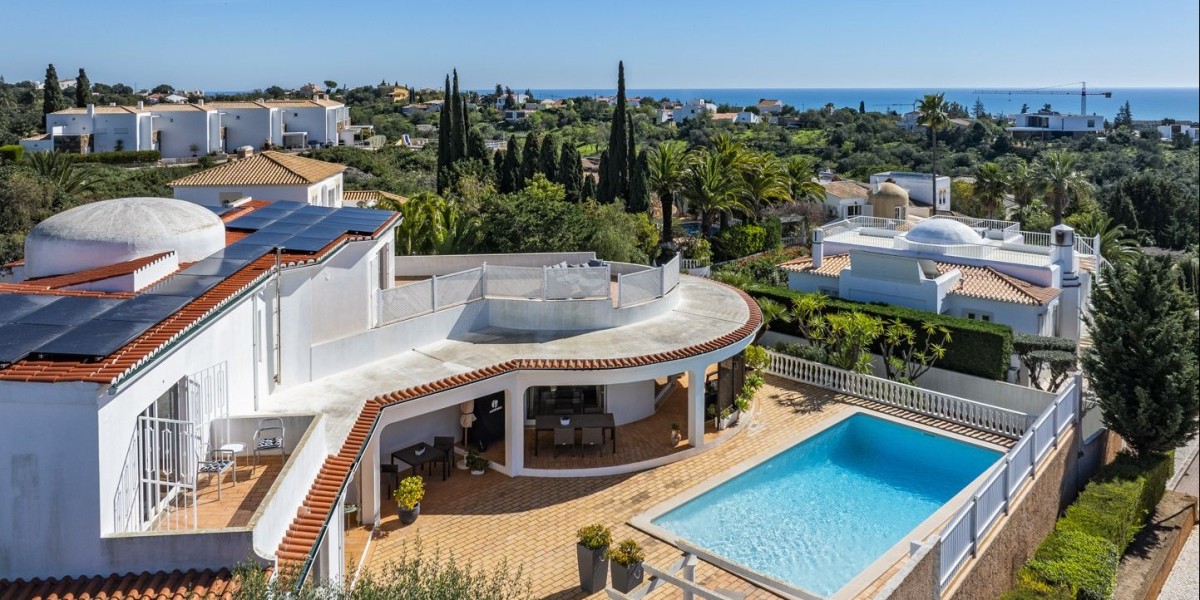
Healthcare in the Algarve
Sorting out healthcare is always high on the list when you’re planning a move, and the Algarve makes things refreshingly straightforward for expats.
Public healthcare here is delivered through the Serviço Nacional de Saúde (SNS), Portugal’s national health service. Once you’re officially resident, you can sign up at your local health centre, and most basic care is either free or comes with only a small fee.
If you prefer a bit more choice or speed when it comes to appointments, the Algarve’s private healthcare sector is strong too. There are modern clinics and hospitals dotted across the region, offering everything from family doctors to specialist care. Private healthcare isn’t as costly as you might expect—private health insurance typically ranges from €50 to €200 per month, depending on what’s covered.
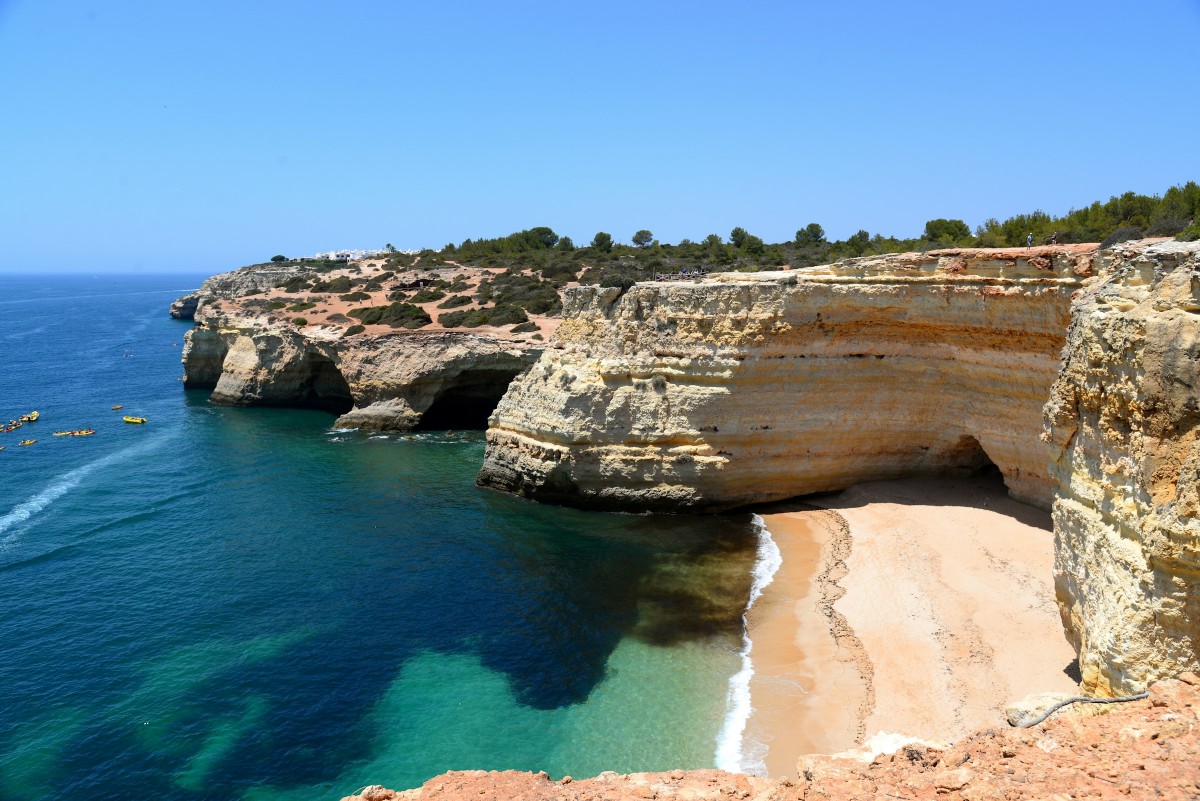
Expat life and seasonal living in the Algarve
Moving to the Algarve, you’ll notice right away that expat life feels easy-going and social. There’s a sizable international community (lots of Brits, Germans, Dutch and Scandinavians), and there’s always an avenue for meeting people.
The expat community: clubs, support & making friends
Settling in feels a lot less daunting when you’ve got people around you in the same boat. Across the region, you’ll find everything from international clubs and Facebook groups to regular coffee mornings and cultural events. If you’re here with family, there are good international schools like the Nobel International School Algarve (Lagoa) and International School of Vilamoura, which can help children settle quickly and connect you to other families.
Living in the Algarve as an American
If you’re coming from the US, you’ll find dedicated groups and meet-ups just for Americans. There's a fair bit of shared know-how about things like NIF numbers, banking, driver’s licences, and accessing healthcare. American expats in particular often comment on the friendly welcome and the ease of getting stuck in with the local scene.
Living in the Algarve in winter
Winter in the Algarve is a real shift from the summer buzz. The crowds thin out, the weather stays mild (often 15–18°C during the day), and life slows down in the loveliest way. You’ll get to enjoy empty beaches, quieter restaurants, and local festivals without any rush. On the flip side, a few tourist-centric shops and bars close for a couple of months and smaller villages can feel properly sleepy.
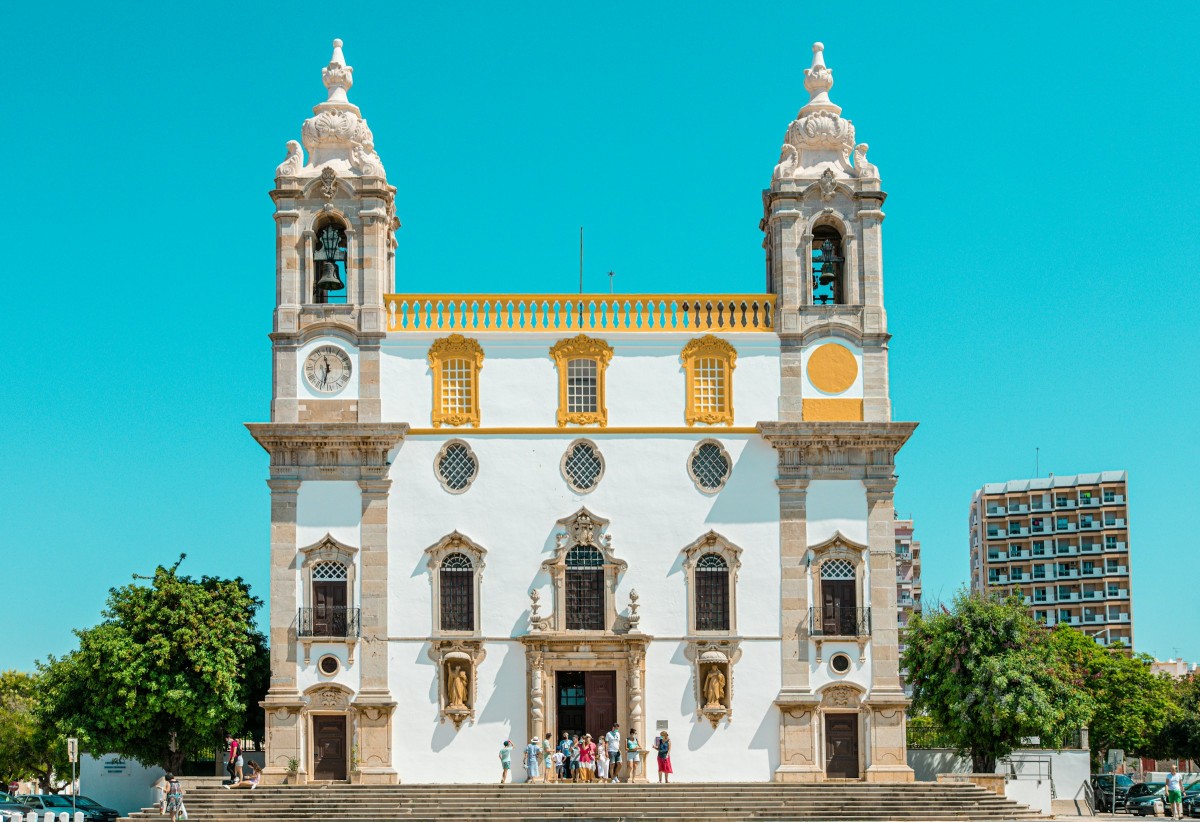
Stay in the know about living in Portugal as a foreigner—get our weekly newsletter for the latest travel, legal, and lifestyle news.
For a taste of the high life, sign up for the monthly luxury market round-up.

